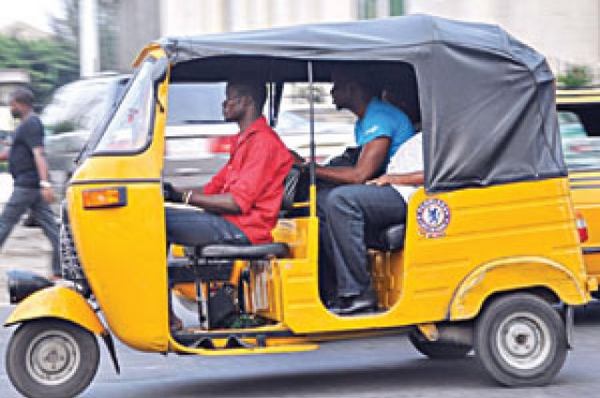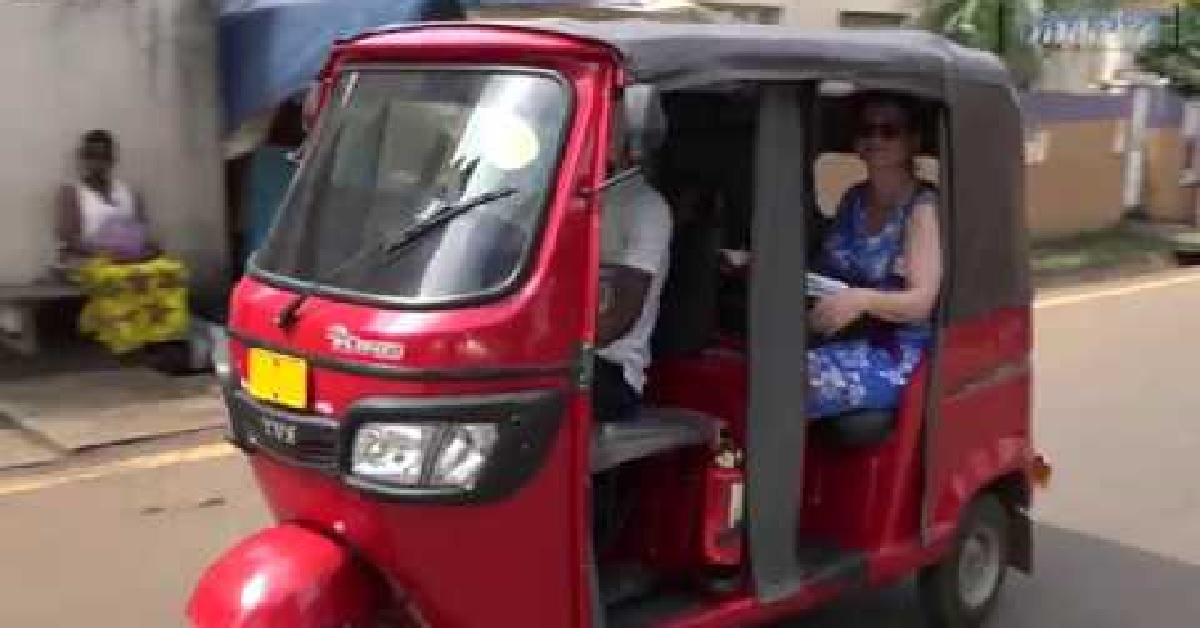Tricycle (Keke) riding is not only taking over as the main means of commercial transportation in Freetown and other places in Sierra Leone, but also serving as the main conduit for thousands of youths to have their daily bread as well.
In an interview with one of the Keke Chairman at Hannah Benka Coker Street Park, Ibrahim Bah, over 20,000 people are directly benefiting from Keke riding in the country. He noted that these 20,000 are the riders themselves, devoid of their families.
If you may recall, Keke came into the shores of Sierra Leone between 2016 and 2017, after making huge impact in Nigeria, Ghana and other countries in Asia. But despite its short span in the country, its impact is enormous in the lives of the ordinary Sierra Leoneans according to Bah. “The machine is helping a lot of families to survive and has also removed thousands of bad boys from the streets as well.”

Mr. Bah said the demand for tricycle has increased exponentially, which has made its sales price to increase from Le8 million when Keke started coming to Sierra Leone, to Le34 million at the moment. He added that there are sometimes three riders per Keke I order for other riders to survive.
TVS, Bajaj and Piajo are three of the famous Kekes in Sierra Leone, in white, black, blue, red and green dominant colours in town.
Most of the riders spoken to confirmed to Awoko that on a normal day they are making a little bit above Le200,000 and Le250,000 inclusive of the daily payment to the owner, which is at Le100,000 for brand new Keke and Le70,000 to Le80,000 for the old machine or fairly used one as that amount is also inclusive of fuel.
Bah said few riders are making above the Le100,000 but any rider who says he makes above Le350,000 on regular basis is purely exaggeration. Commenting on the daily collection of Le2,000 by the Sierra Leone Tricycle Union (SLTU) from the riders, one of the riders plying the Central Business District Abdul Sesay stated that riders are just putting monies into the pocket of some people with no form of accountability.
But Chairman Bah has a contrary view to such notion, saying that this is being collected is welfare fund, and members are expected to pay their monthly contribution regularly aside from that fund if they should fully benefit from the Union.
With over 60,000 Kekes in Sierra Leone, Economist Eugene Taylor said the SLTU is collecting over Le12 million on a daily basis as welfare fund and over Le360 million per month.
He said they are not only making money for themselves but also supporting the country’s GDP due to the over Le700,000 license fees they are paying to Government.
“Booking which is otherwise registering with a certain amount of money to the police by the riders so that they can ply freely in the streets without any hinderance, is one which Sergeant S. Turay, a Traffic Officer denied vehemently.
According to Sergeant Turay they are only doing what the law says. “All what we are doing is to enforce the law. We are not arresting Keke riders because we want to arrest them, but we are doing so when they go contrary to the rules and regulations governing them.”
He said they have a cordial relationship with the Keke riders as well as other transports owner in the streets, which Chairman Bah also alluded to. “If we go by the rules and regulation, we will not have any problem with the police.”
Bah said even though they have some bad eggs in their midst but they are often sensitive their members, in order for them to put up the best of behaviours when dealing with the public.
Awoko Newspaper reports that, with regards to the concern being raised by drivers that “Keke are putting them out of business,” he noted “We are not taking people or the taxi drivers out of business, as we are not telling them not to sit in their taxies. We are finding our own monies and they are finding theirs. I think the owners of those cars have now decided to invest in Keke.”











